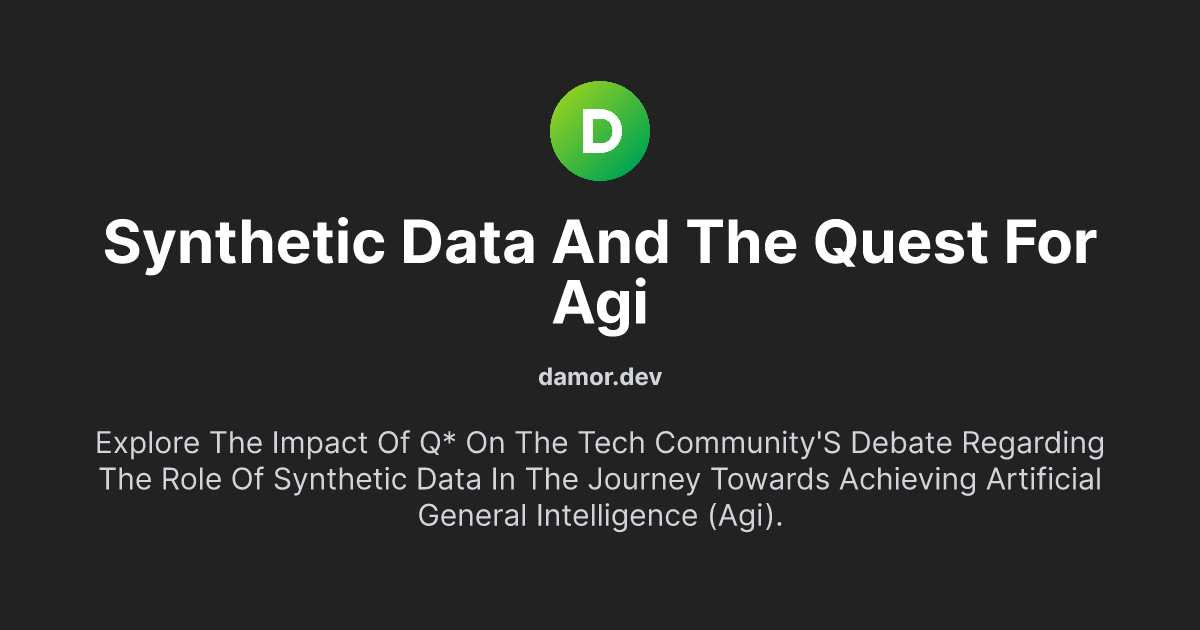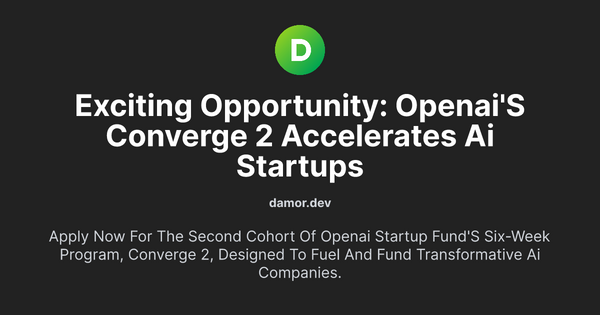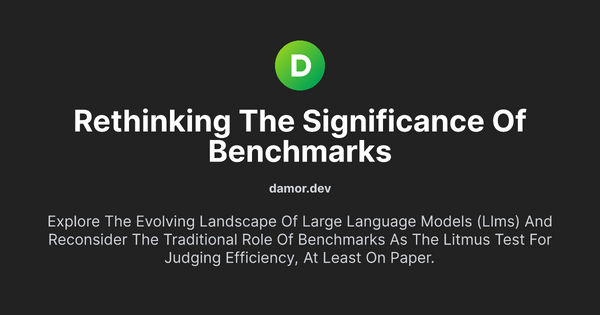Synthetic Data and the Quest for AGI

The Role of Synthetic Data in Achieving AGI Simplified
A recent tech debate sparked when OpenAI introduced Q*, a model showcasing advanced reasoning skills and math problem-solving using synthetic data. This led to discussions on whether synthetic data alone could lead to Artificial General Intelligence (AGI).
Background
- Q* uses computer-generated data instead of real-world information like text or images from the internet.
- The debate centers around whether relying on synthetic data is the key to AGI.
Differing Views
- Yann LeCun from Meta disagrees with OpenAI, emphasizing that improving the reasoning capabilities of language models (LLMs) is crucial for AGI, not just increasing data.
- Bojan Tunguz from NVIDIA adds that, especially in tabular datasets and training autonomous vehicles, synthetic data could be worse than useless.
- Jim Fan, another AI scientist at NVIDIA, believes synthetic data is important but not enough for AGI.
Concerns and Considerations
- Elon Musk highlights the vastness of synthetic data, raising concerns about whether language models can handle such a large amount effectively.
- Two years ago, Andrej Karpathy used synthetic data at Tesla, and now at OpenAI, he hints at a new architecture called Hybrid LLMs, which may use synthetic data selectively.
Planning and Exploration
- LeCun speculates that Q* might be OpenAI's attempt at "planning," a branch of AI focused on sequences of actions for specific goals.
- OpenAI is exploring planning with Q-learning and PPO, where synthetic data creates realistic training environments.
New Hires and Achievements
- LeCun notes the hiring of Noam Brown, indicating OpenAI's focus on multi-step reasoning.
- Despite Q*'s achievements, it's clear that synthetic data alone may need a new architecture to enhance reasoning for AGI.


![[Solved] ZlibError:zlib:
unexpected end of file - payload](/content/images/size/w600/2024/02/Screenshot-2024-02-18-143905.png)


